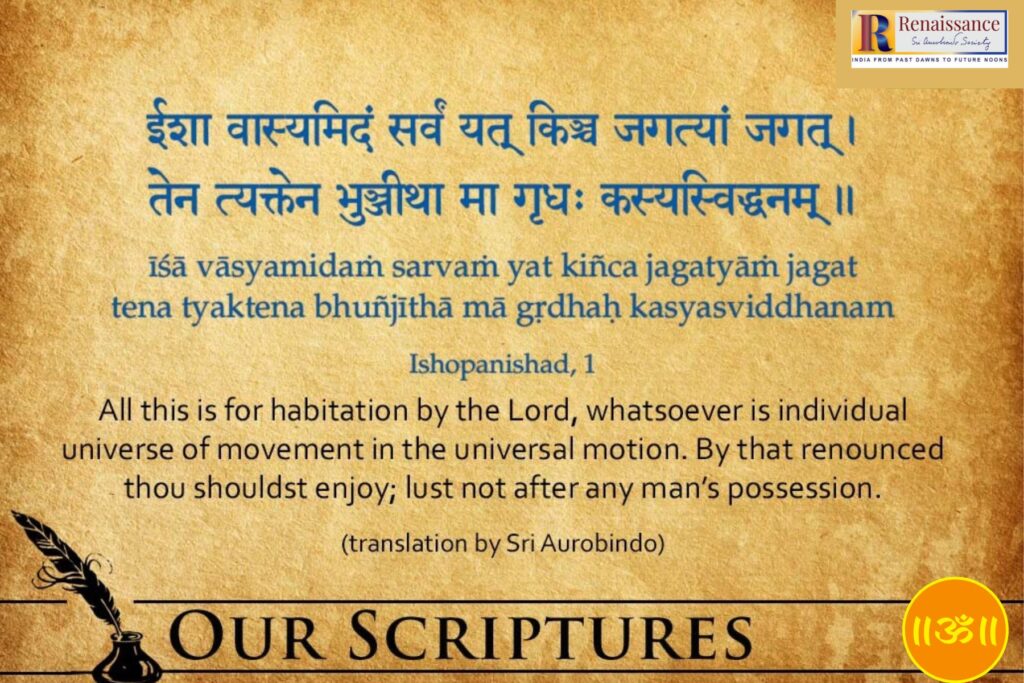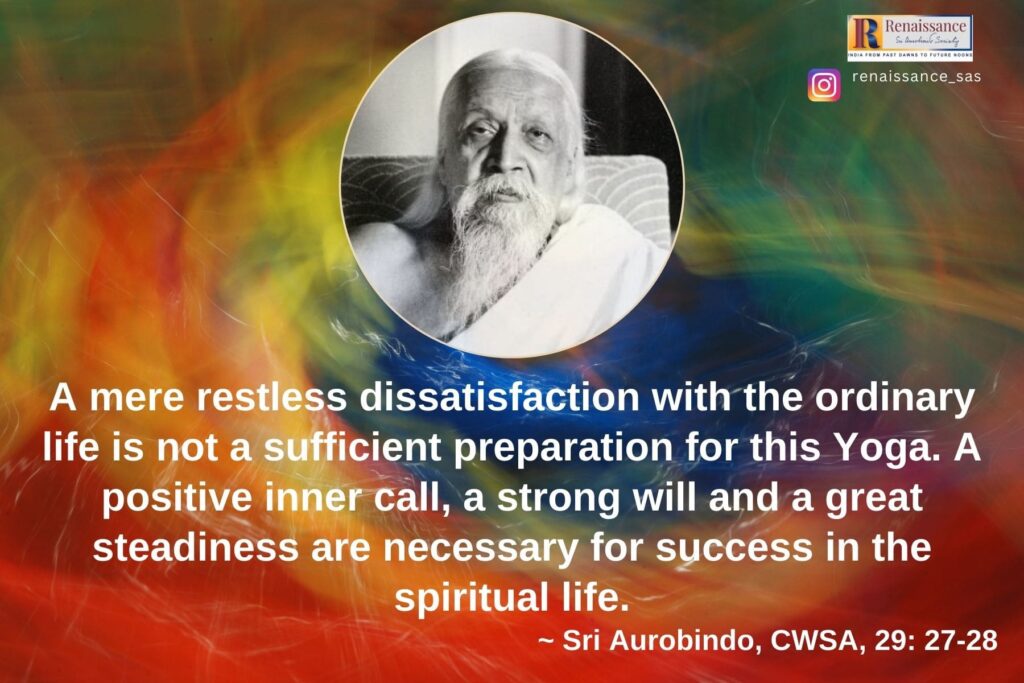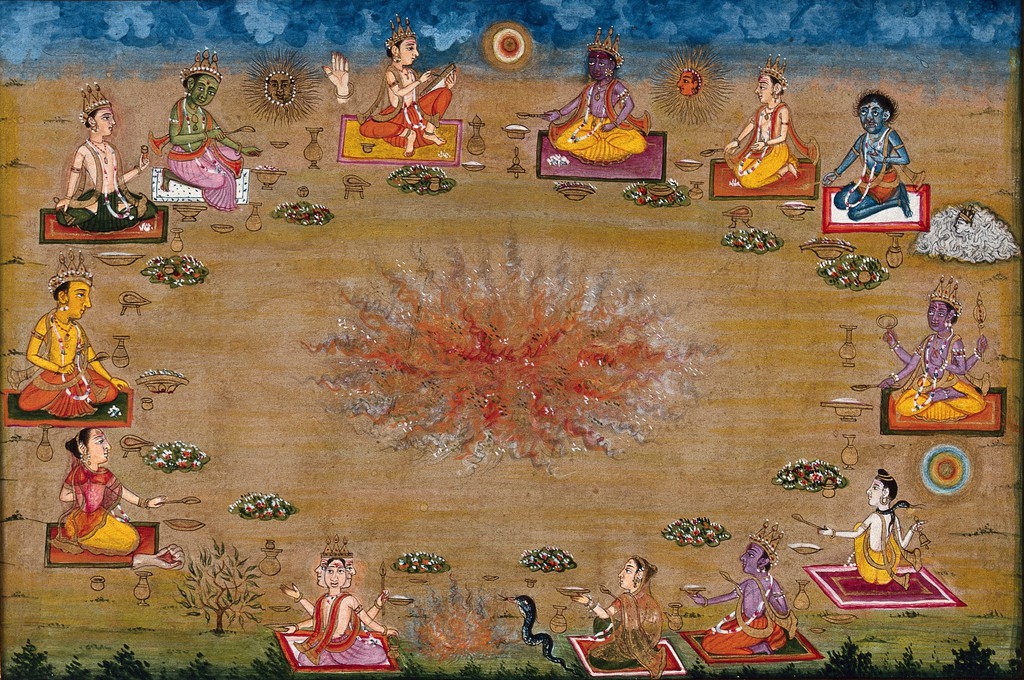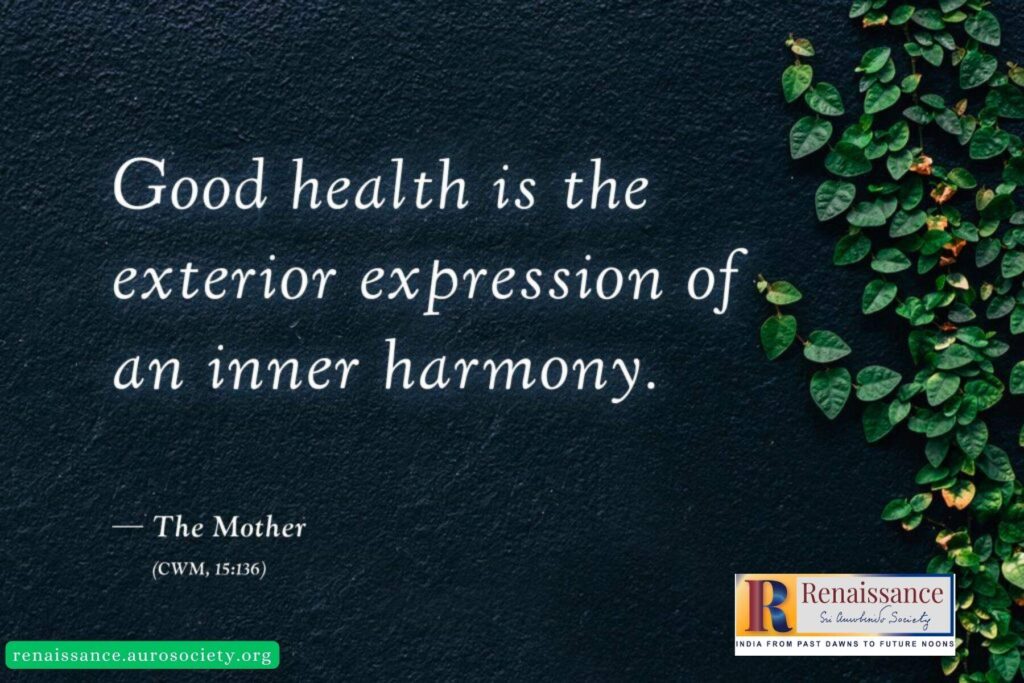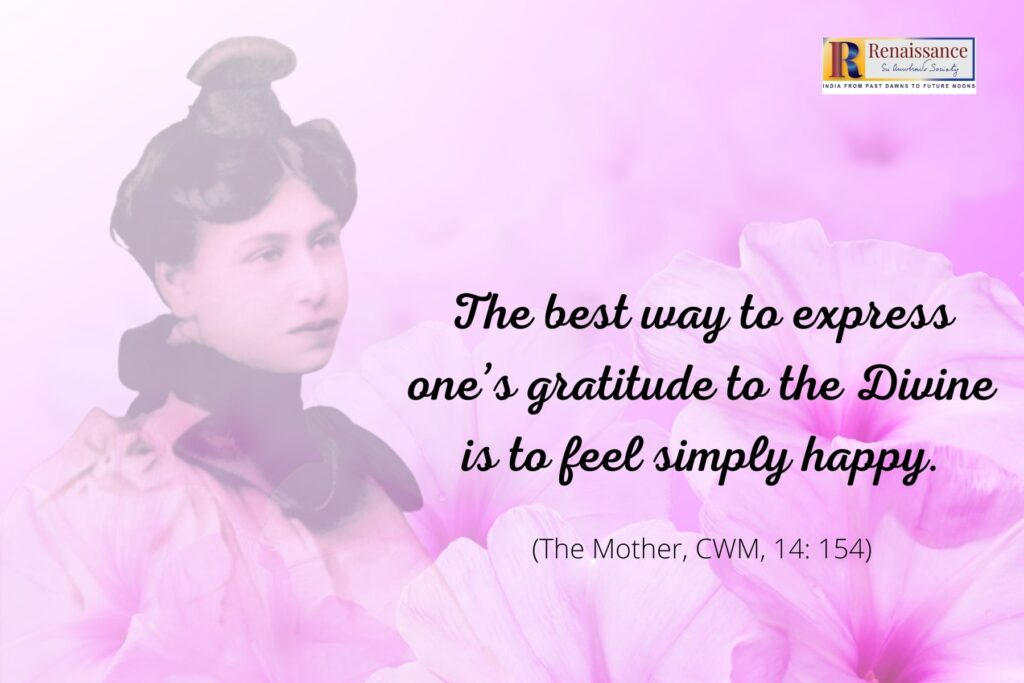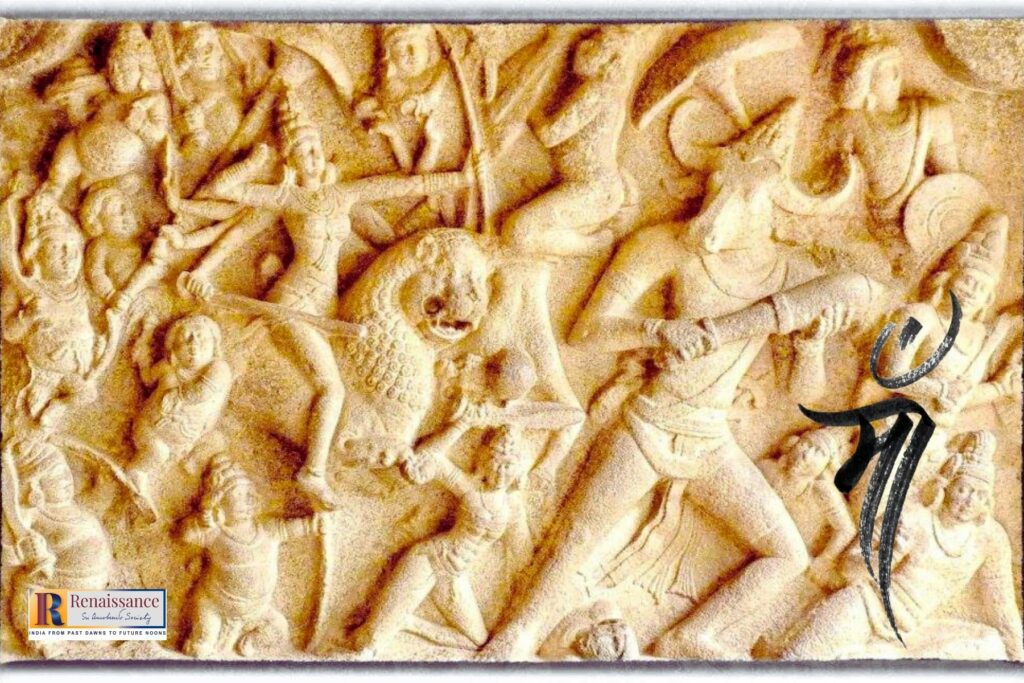Sri Aurobindo on Isha Upanishad – Part 6
The last 2 verses of Isha Upanishad are Rishi’s powerful invocations to Gods Surya and Agni who alone can uplift him and open still higher vistas of Light and Power leading to the final goal of Immortality while still living on earth for a full span of life.
Sri Aurobindo on Isha Upanishad – Part 6 Read More »

